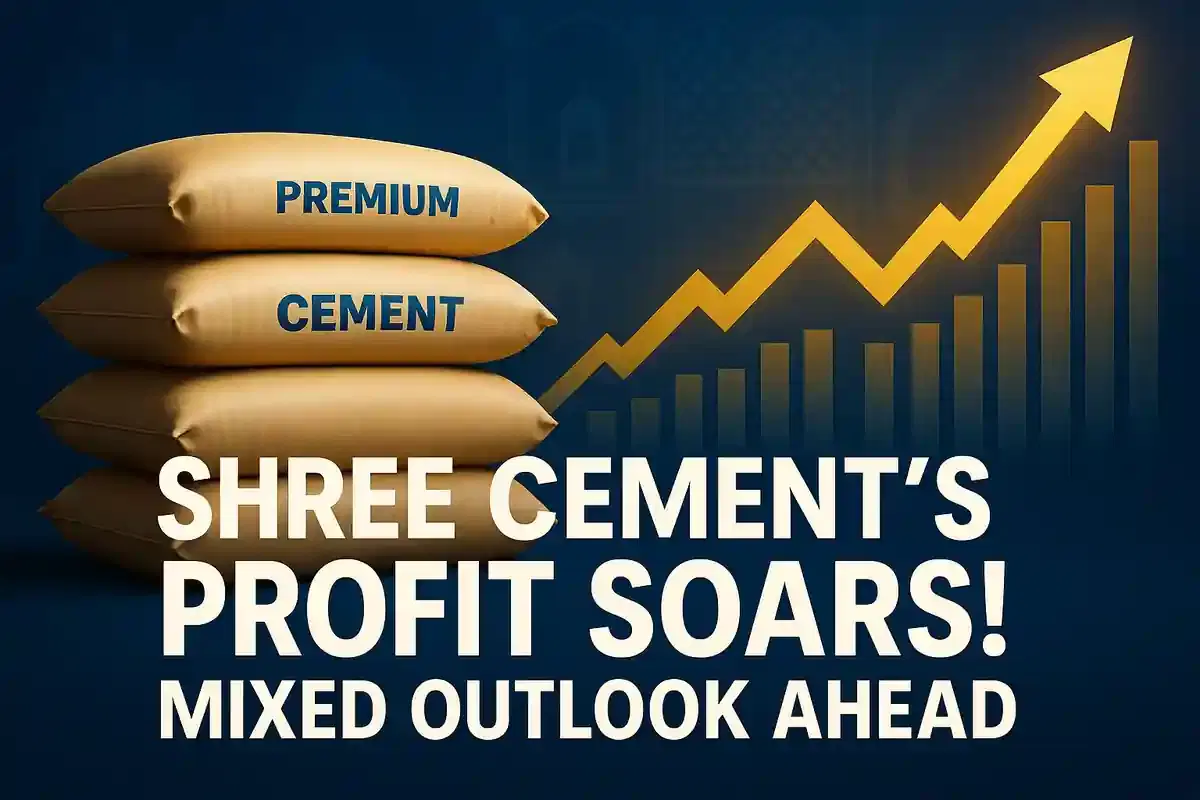Shree Cement's Profit Trebles Amidst Mixed Analyst Views on Future Growth
Industrial Goods/Services
|
29th October 2025, 4:10 AM

▶
Stocks Mentioned :
Short Description :
Detailed Coverage :
Shree Cement has announced a stellar quarter with profits tripling, largely attributed to its strategic shift towards high-value premium products. These premium offerings now represent 21% of total sales, up from 18% in the previous quarter, a move aimed at enhancing profit margins even if it means a temporary sacrifice in market share. Analysts at CLSA noted that Shree Cement has achieved its target share of premiumisation and expects growth to align with or exceed industry levels.
Despite this positive product mix, the company faced sequential challenges in the September quarter. Realizations saw a 2% drop compared to the previous quarter, coinciding with a 4% increase in costs and a significant 12% decline in sales volumes. Earnings Before Interest, Taxes, Depreciation, and Amortization (EBITDA) per tonne also slipped to ₹1,105 from ₹1,375. The benefits from recent Goods and Services Tax (GST) cuts were limited, as they were implemented late in the quarter, and the subsequent festival season, particularly October, is traditionally weak for construction and cement sales.
This demand slowdown is more pronounced in North India, Shree Cement's primary focus area, where over a quarter of its factories are located. Management indicated potential labor shortages post-festival season, impacting construction sites. Citi analysts suggested that these demand concerns might lead to a year's delay in the company's ambitious 80 million tonne expansion plan. Nevertheless, Shree Cement's stock has performed well year-to-date, up 12%, outperforming peers like Ultratech Cement, Ambuja Cement, and Grasim Industries.
Impact This news has a significant impact on Shree Cement's stock performance and investor sentiment. The mixed outlook, balancing strong past performance with future growth concerns, can lead to stock price volatility. It also provides insights into the operational challenges and demand dynamics within the Indian cement sector, particularly in North India, potentially affecting other industry players. Rating: 7/10
Difficult Terms Explained: EBITDA: Earnings Before Interest, Taxes, Depreciation, and Amortization. This metric measures a company's operational performance and profitability before accounting for financing costs, taxes, and non-cash expenses like depreciation. Realization: The average revenue generated per unit of product sold. For Shree Cement, it refers to the price per tonne of cement sold. Premiumisation: A business strategy focused on increasing sales of high-end, higher-priced products within a company's offerings to boost overall profitability, sometimes at the expense of market share. Sequential Fall: A decrease in a financial or operational metric from one consecutive period (e.g., quarter) to the next.